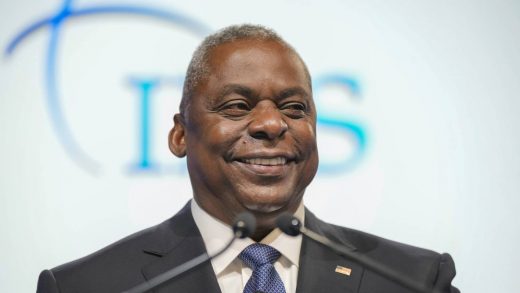
Te Ao Tapatahi reporter Marena Mane never expected to become a journalist or to end up spending a large chunk of her adult life working for Whakaata Māori.
Up until about the age of eight or so, she never even expected to be a Māori.
Born and bred in the baking heat of Darwin, Australia, as a child Mane spent her free time each day playing outside until the streetlights turned on at dusk.
“You wouldn’t know now – I’m quite fair – but living in Darwin I was a lot darker, due to the sun and us as kids being outdoors all the time,” she recalls, smiling at the memory.
READ MORE:
* Advice from Pākehā te reo speakers: ‘Persist but don’t beat yourself up’
* Walking the talk with Rukuwai Tipene-Allen from Te Ao Māori News
* A te reo Māori glossary for your home
“On my street we lived with a lot of Aboriginal families and we all went to school together. I hung out with a lot of people my colour. At school they just classed us as Aborigines, so I always thought I was one.
“Living in Darwin, I had never met any of my real family – my Māori family – and I was surrounded by all these Aboriginals, thinking that they were my aunties and uncles.”
It wasn’t until her father, who had moved to Australia from New Zealand when he was 16 and never returned, became terminally ill that Mane first learnt the truth about where she really came from.
Supplied
Marena Mane says at age eight she discovered “that basically my whole life was a lie”.
“He was given three months to live, but his dream was for us to all move home.
“So when my dad got sick, my mum sat me down and told me we were moving back to New Zealand.
“And I was like, ‘Where’s New Zealand?’ ‘That’s where we’re from.’ ‘What do you mean that’s where we’re from?’
“Being told at eight years old that basically my whole life was a lie and that I was actually a Māori was a huge identity crisis for me. I didn’t want to face the truth that I was Māori, because I wanted to be Aboriginal.”
She can laugh about it now, but Mane still remembers the trauma of that time and how much she missed the heat and red dirt of her home in Darwin.
“I literally cried for a whole year when I was here in New Zealand – wanting to go back home, finding it too cold. The greenery here was nice, but unfamiliar surroundings for me.
“We touched down in Auckland and immediately went up north to Hokianga, where my dad was from, to see his family.
“Out in the country they didn’t have flushing toilets at that time so it was a long-drop, and going toilet in the long-drop was very scary for me at age eight, in the middle of a paddock with cows walking around.”
There were cultural differences too – staying on the local marae, sleeping all together in the wharenui, getting used to hearing a different language being spoken – and Mane says the experience was a “huge eye-opener” for her young self.
Mane’s father died when she was 10, at which time her mother moved their little whānau to Auckland.
Supplied
Marena Mane admits she was thrown in at the deep end when learning te reo Māori.
It was here that the future Māori TV reporter’s reo journey began in earnest, after she was enrolled in a total-immersion primary school.
With a limited knowledge of te reo Māori, it was very much a case of being thrown in at the deep end, but eventually Mane’s confidence grew and she continued her total-immersion learning at the Hoani Waititi high school in West Auckland, getting up at 5am every morning to catch a bus from her home suburb of St Heliers.
After leaving school, Mane went on to teachers’ training college, gaining a bachelor degree in education and a diploma in kura kaupapa Māori, with the initial intention of returning to her own kura to teach.
Instead, at age 22, she applied for a subtitling position at the then newly formed Māori Television, now Whakaata Māori, and was surprised to find herself successful, starting work on the same day the channel launched in March 2004, part of a team in which she was the youngest by 40 years.
Since then Mane has come and gone from the channel more than once, holding several different roles, but says she is “always getting drawn back to Whakaata Māori”.
“Coming back to Māori TV is a privilege for me, and I take it seriously to make sure that our station stays, and our reo is out there. It gives me satisfaction that our reo is going to be alive.”
It is now a vital part of her life.
“I am a service to the reo and to the revitalisation of the reo, and I live by that every day.”


